Ken Kesey
출생 : 1935-09-17, La Junta, Colorado, USA
사망 : 2001-11-10
약력
From Wikipedia, the free encyclopedia
Kenneth Elton "Ken" Kesey (September 17, 1935 – November 10, 2001) was an American author, best known for his novel One Flew Over the Cuckoo's Nest (1962), and as a counter-cultural figure who considered himself a link between the Beat Generation of the 1950s and the hippies of the 1960s. "I was too young to be a beatnik, and too old to be a hippie," Kesey said in a 1999 interview with Robert K. Elder.
Description above from the Wikipedia article Ken Kesey, licensed under CC-BY-SA, full list of contributors on Wikipedia.
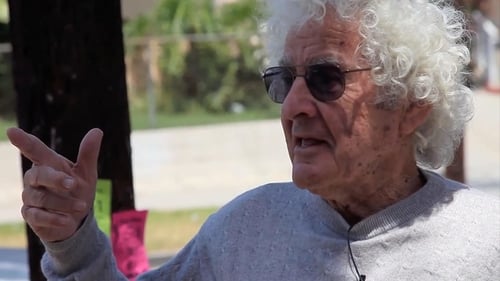
An associative view of the days, nights and characters that enclosed the life of Arthur Janov, which defines in the conclusion "It's never too late to have a happy childhood". Arthur Janov (1924-2017) was a classic instance of being the right charismatic therapist at the right time - the zeitgeist. Dr. Janov first heard about the embryo to the primal scream through one of his patients when he performed conventional psycho dynamic therapy. It was an absurd theatre performance by Raphael Montañez Ortiz called "Mommy, Daddy" presented in London, 1966. The birth of Primal therapy happened when Arthur Janov's book, "The Primal Scream" was published early 1970.

Self/Archive Footage
Ken Kesey (1935 - 2001) is one of the best-known authors to ever emerge from Oregon. He wrote his two most-acclaimed novels, One Flew Over the Cuckoo's Nest (1962) and Sometimes a Great Notion (1964), when still in his twenties. In his passing, Ken Kesey left behind plenty of good things to read. He convinced countless thousands of people to open the door to new experiences and "new ways to think." He, the Pranksters and the Bus made their own unique marks on popular culture. In this segment, we asked members of his family about his legacy.

words and recordings
A freewheeling portrait of Ken Kesey and the Merry Prankster’s fabled road trip across America in the legendary Magic Bus. In 1964, Ken Kesey, the famed author of “One Flew Over the Cuckoo’s Nest,” set off on a legendary, LSD-fuelled cross-country road trip to the New York World’s Fair. He was joined by “The Merry Band of Pranksters,” a renegade group of counterculture truth-seekers, including Neal Cassady, the American icon immortalized in Kerouac’s “On the Road,” and the driver and painter of the psychedelic Magic Bus.

Himself (archive footage)
Plant Explorer Richard Evans Schultes was a real life Indiana Jones whose discoveries of hallucinogenic plants laid the foundation for the psychedelic sixties. Now in this two hour History Channel TV Special, his former student Wade Davis, follows in his footsteps to experience the discoveries that Schultes brought to the western world. Shot around the planet, from Canada to the Amazon, we experience rarely seen native hallucinogenic ceremonies and find out the true events leading up to the Psychedelic Sixties. Featuring author/adventurer Wade Davis ("Serpent and the Rainbow"), Dr. Andrew Weil, the Grateful Dead's Bob Weir and many others, this program tells the story of the discovery of peyote, magic mushrooms and beyond: one man's little known quest to classify the Plants of the Gods. Richard Evans Schultes revolutionized science and spawned another revolution he never imagined.

Himself (archive footage)
The 1960's and 1970's were a time of change, a time of revolution, a time of the Hippies. Hippies reached across the nation and their effects are still felt today.

Himself
"Go Further" explores the idea that the single individual is the key to large-scale transformational change. The film follows actor Woody Harrelson as he takes a small group of friends on a bio-fueled bus-ride down the Pacific Coast Highway. Their goal? To show the people they encounter that there are viable alternatives.

Director
A film by Ken Kesey
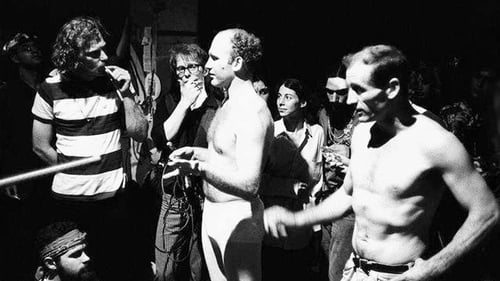
Self
A look at the life and influence of acclaimed sixties writer Ken Kesey. Features archive footage of his 1964 Magic Bus Tour with The Merry Pranksters.
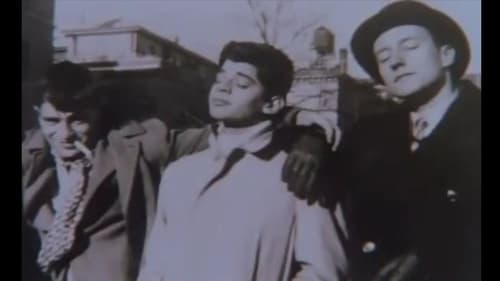
Self
Traces the Beats from Allen Ginsberg and Jack Kerouac's meeting in 1944 at Columbia University to the deaths of Ginsberg and William S. Burroughs in 1997. Three actors provide dramatic interpretations of the work of these three writers, and the film chronicles their friendships, their arrival into American consciousness, their travels, frequent parodies, Kerouac's death, and Ginsberg's politicization. Their movement connects with bebop, John Cage's music, abstract expressionism, and living theater. In recent interviews, Ginsberg, Burroughs, Kesey, Ferlinghetti, Mailer, Jerry Garcia, Tom Hayden, Gary Snyder, Ed Sanders, and others measure the Beats' meaning and impact.

Himself
Behind the scenes interviews for One Flew Over the Cuckoo's Nest

Narrator
Pre embodied the spirit of athletic excellence. He had a belief in self and sport that transcended all but the outer reaches of human speed and endurance. As a freshman, he appeared on the cover of Sports Illustrated, which hailed him as "America's Distance Prodigy". By the time he died in a tragic auto accident at the age of 24, Pre held all 7 American records between 2,000 and 10,000 meters. Off the track, he fought relentlessly for the rights of amateur athletes to prosper for their sacrifices. Narrated by Ken Kesey, Fire On the Track is the story of this young lion's life, as told through rare footage and the memories of those who knew him best - his teammates, coaches, family and friends. Interviews include David Bedford, Frank Shorter, Ian Stewart, Bill Bowerman, Jeff Galloway, Dick Buerkle, Lasse Viren, Dana Carvey, Mac Wilkins, Kenny Moore, Dave Wottle, Alberto Salazar, and many more.
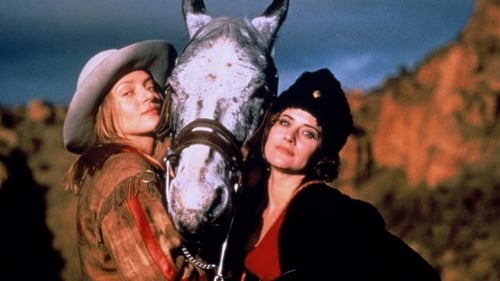
Sissy's Daddy
Sissy Hankshaw is born with enormous thumbs that help her hitchhiking through the US from a young age. She becomes a model in advertising and her NY agent 'the Countess' sends her to his ranch in CA to shoot a commercial, set against the background of mating whooping cranes. There, she befriends Bonanza Jellybean, one of the cowgirls at the beauty- ranch.

Himself
This refreshingly frank and impartial study of the discovery and development of the notorious hallucinogenic drug is notably free of moral judgmental, and features contributions from such legendary heroes of psychedelia as Albert Hoffman - the Swiss scientist who discovered the drug - Aldous Huxley - author of 'The Doors of Perception' - Ken Kesey - author of 'One Flew Over the Cuckoo's Nest.

Writer
"Conditions" - The improvisation-based performance was inspired by psychiatrists such as RD Laing (Family and Madness) and J. Foudraine (Who is of wood). The Werkteater played this performance 'in the den of the lion': in psychiatric institutions for patients and carers. This led to very intensive and adventurous performances in which 'a lot' always happened. Afterwards the discussions sometimes ran high, but even during the performance the audience sometimes mixed themselves in the scenes.

Self
Made in 1976, TVTV's close-up look at Hollywood's annual awards ritual mixes irreverent documentary with deadpan comedy. TVTV's cameras go behind the scenes to follow major Hollywood figures (including Steven Spielberg, Michael Douglas, Lee Grant, Jack Nicholson, and many others), capturing them in candid moments—inside their limousines, dressing for the ceremony, backstage at the awards.
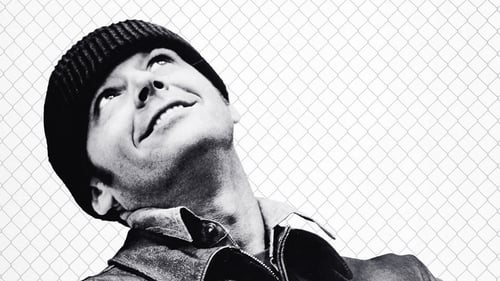
Novel
많은 죄를 짓고 수감중이던 맥머피는 교도소에서 정신 병원으로 후송되는데, 감옥보다는 자유로울 것으로 생각했지만 전혀 그렇지 않다는 것을 깨닫는다. 정신 병원의 여러 환자들과 생활하면서 맥머피는 그들이 겉으로는 전혀 문제가 없어 보이지만 보이지 않는 병원내의 압력에 의해 짓눌려 사는 죽은 인간들임을 간파한다. 그리고 그러한 압력의 주범이 간호사 레취드임을 알게 된다. 맥머피는 환자들을 끌고 병원을 빠져나가 낚시를 다녀오거나 파티를 여는 등 의도적인 반항을 시도하다 결국 탈출을 결심하게 되는데...
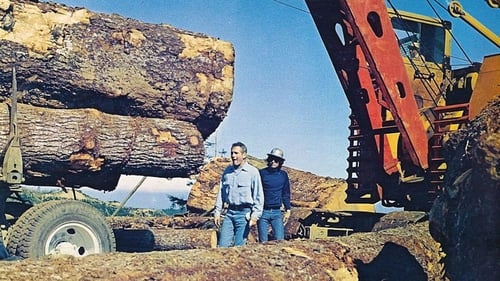
Novel
오레곤 주에서 벌목 사업을 하는 스탬퍼 일가는 권위적인 아버지 헨리(헨리 폰다)와 큰 아들 행크(폴 뉴먼), 아내 비브(리 레믹), 의붓동생 리(마이클 사라진) 등이다. 헨리는 벌목한 나무를 공장까지 운반하기로 계약하고 어떤 어려움이 있더라도 고집스럽게 그 약속을 지키려 한다. 이에 파업 중인 마을 사람들의 적대감은 점점 높아져 가고 노조활동에 반대하는 헨리에게 등을 돌린다. 결국 사람들은 스탬퍼 일가의 장비를 부수는 등 폭력적인 대결로까지 발전하지만 헨리는 절대 물러서지 않는데..

Director
Sound and image captured by the Merry Pranksters in late 1965 and early 1966: the bus on the road, the Grateful Dead playing an Acid Test, Kool-Aid ritual, etc.

Sound and image captured by the Merry Pranksters in late 1965 and early 1966: the bus on the road, the Grateful Dead playing an Acid Test, Kool-Aid ritual, etc.






